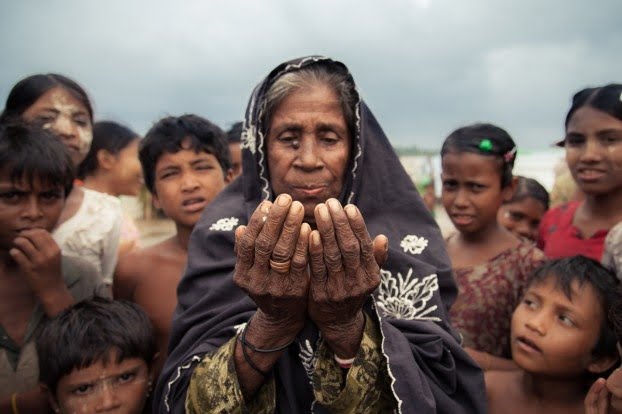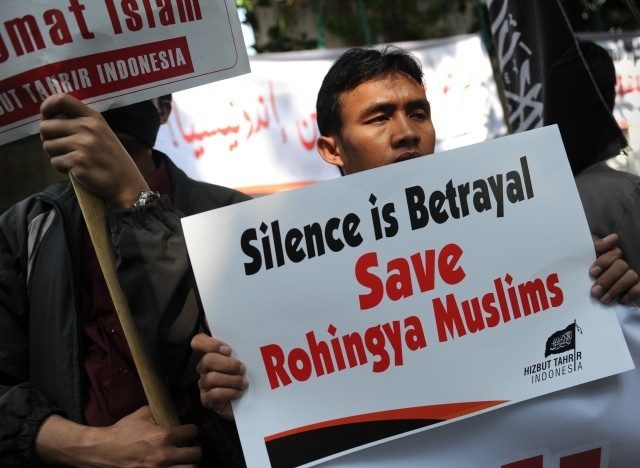By Ranjabati Ray.
How casually do we use the term “refugee”? We hear about people being forced to leave their countries due to internal turmoil and just sigh and think about how they are being treated as refugees.
How often do we read about the Syrian people and feel bad that they are being forced to move out from their homes and not getting any shelter from any other country.
But what about people closer to our homeland? What about those who have been oppressed and are still being oppressed by the people in their homeland? Are we really familiar with the issue of Kashmiri pandits and how they were and are still being treated as pawns in the hands of political parties?
Well, if we are not that clear about the status of the oppressed in our own homeland then how can we even know about the similar conditions being faced by a certain ethnic group called the Rohingya in our very own neighbouring country, Myanmar.
So, to start off, let us first familiarize ourselves with the Rohingya people. These are basically the ethnic groups from Myanmar who are originally Muslims and are generally residing in the Rakhine state, a coastal state of Myanmar.
So what’s so great about these people that the United Nations had declared this ethnic group as one of the most oppressed minorities of this world?
Well, the fact is that these people are considered as refugees in their own country by their own Government and are forced to flee to neighboring countries such as Bangladesh, Thailand and Indonesia.
The Rohingya people consider themselves to be the pure descendants of the Arabs and declare that they have resided in the state for over a period of 1000 years.
However, the Burmese government has continuously refused to accept this especially after the Rohingya people had sided with the British army during the Second World War instead of showing allegiance to Japan like the rest of the country.
The Rohingya people are termed as refugees because their government thinks of them to be migrants from Bengal and mainly Chittagong, who had moved here during the British rule in search of jobs and had simply settled here.
They are not considered to be of ethnic origins of the country of Myanmar and this fact firmly established by the government when it refused to give them citizenship under the 1982 Citizenship Act of the country.
Not only that, severe cases of oppression and violence have been inflicted upon this group over the years because of which they are forced to flee to neighboring countries, the first of which was Bangladesh.
And although initially, Bangladesh had welcomed these people with open arms, yet, seeing their current overburdened internal population strength, the Bangladeshi government has also been forced to turn its face away from this group and in recent times, it has also stopped the Rohingya people from seeking asylum.
In spite of all of this, the sorrows of the Rohingya people are not shared with the rest of the world. The media refuses to cover their stories to great extents, their stories lack the vigor and the apathy which the media primarily shows to the Syrian crisis.
Also, the countries surrounding Myanmar and even Myanmar itself is not a signatory to the 1951 U.N. Refugee Convention or even its 1967 Protocol.
Hence, unlike the case of the Syrians, where media pressure has forced many of the European countries, who are signatories to provide asylum, the Rohingya group has no other option but to remain as refugees in the world where no country, including their motherland is ready to provide shelter to them.
You’d Also Like To Read : Can We Please Stop Alienating And Neglecting The North-East From The Rest Of India





































